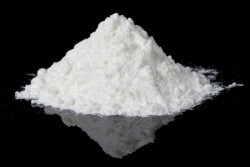 When an individual becomes addicted to a drug, such as cocaine or heroin, the brain undergoes certain changes. The drug, quite literally, can change how we think. The most obvious sign of a psychological addiction to cocaine is the compulsion to use the drug. As explained by the National Institute on Drug Abuse, the decision to use drugs may not be in the hands of the addict, but in the brain. Certainly, the first decision to use any drug lies with the individual. After repeated use, however, the brain experiences changes that take control away from the individual and compulsion takes over.
When an individual becomes addicted to a drug, such as cocaine or heroin, the brain undergoes certain changes. The drug, quite literally, can change how we think. The most obvious sign of a psychological addiction to cocaine is the compulsion to use the drug. As explained by the National Institute on Drug Abuse, the decision to use drugs may not be in the hands of the addict, but in the brain. Certainly, the first decision to use any drug lies with the individual. After repeated use, however, the brain experiences changes that take control away from the individual and compulsion takes over.
Once an individual has become psychologically addicted to cocaine, their entire life is affected. There are several major components to the disease of addiction, as defined in the industry manual used by medical professionals to diagnose substance abuse and dependence. If we look at each component individually, it is easy to see that a psychological addiction to cocaine can be devastating.
When an individual suffers from addiction, he or she may find that cocaine or other drugs have become the most important aspect of their life. They may no longer find satisfaction in performing well in school or on the job. They may neglect their family responsibilities, such as caring for their children adequately or taking care of an elderly parent.
If someone is suffering from addiction, using the drug takes precedence over what most people would consider common sense decision-making. For instance, prior to addiction taking hold, a certain individual may have never considered going to a dangerous part of town, perhaps unattended, to buy drugs. The psychological addiction to cocaine, however, can supersede the common understanding that visiting certain locations or associating with certain individuals is inherently dangerous.
In addition to placing oneself in danger to obtain cocaine, a cocaine addiction can prevent an individual from making good decisions for the safety of others. Driving a vehicle under the influence of cocaine can be dangerous as it can lead to heart attack, respiratory problems or seizures. Should one of these physical manifestations of cocaine use come about while the individual is driving a car, anyone on the road with them is in harm’s way.
According to the Drug Enforcement Agency, cocaine is a Schedule II drug. This means that the drug has a very limited use for medicinal purposes, and it can easily lead to addiction. It also means that it is against the law to possess cocaine for most citizens of the United States. The Controlled Substances Act defines the penalties for possession of certain drugs, and cocaine possession can lead to fines and imprisonment.
If someone is caught in possession of cocaine, even in their own home, they face not only the fines associated with conviction, but the costs of retaining an attorney to ensure their rights are protected. These costs can be significant and have effects on meeting everyday obligations, such as paying for rent or food. Should an employer discover that one of their employees has been arrested for cocaine possession, it is completely reasonable that they may terminate the individual’s employment. This, of course, can lead to even more problems financially. Should this same individual be convicted of the charges levied against them, they may find themselves seeking treatment for psychological addiction to cocaine from the confines of a local jail or state or federal prison.
Diminished Interpersonal Relationships
The experts at the National Institute on Drug Abuse have found that long-term users of cocaine can develop heightened sensitivity to the anxiety caused by the drug. Individuals can experience:
- Irritability
- Panic
- Restlessness
- Psychosis
- Hallucinations
- Paranoia
If you are currently using cocaine, imagine what it must be like to live with someone who experiences these side effects. If you’re not using cocaine, but you live or socialize with someone who is, have you noticed these types of indications in them? Sometimes, it is difficult to have a solid relationship in today’s hustle and bustle world, but having a relationship with someone who is short-tempered, paranoid or delusional may be nearly impossible. Therefore, it is not uncommon for individuals suffering from a psychological addiction to cocaine to find that their personal relationships with parents, lovers, friends, spouses and their children are falling apart.
In order to avoid the effects of a psychological addiction to cocaine, it is imperative that the drug user seek help from qualified professionals who can diagnose, treat and manage the symptoms of addiction. Here at Axis, we can help you or your loved one overcome addiction and work toward a successful and productive lifestyle. Call today to find out more about the treatment options available to you.


